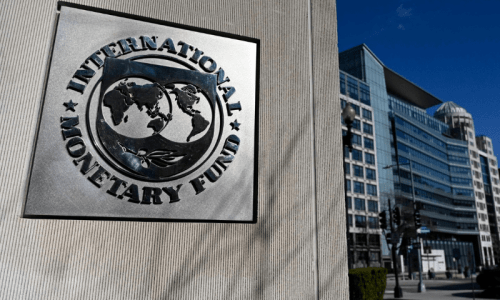WASHINGTON: The International Monetary Fund’s (IMF) Executive Board authorized on Monday the quick transfer of roughly $1.1 billion to Pakistan.
The board concluded the second review under the Stand-By Arrangement (SBA) for Pakistan during its Monday meeting in Washington, D.C., which cleared the way for the arrangement’s total disbursements to reach roughly $3 billion.
All board members—aside from India, which voted against—supported the release of the final installment.
The IMF said in a statement that “the completion of the second and final review reflects the authorities’ stronger policy efforts under the SBA, which have supported the stabilization of the economy and the return of modest growth.”
The statement went on, “The authorities need to continue their policy and reform efforts, including strict adherence to fiscal targets, to move Pakistan from stabilization to a strong and sustainable recovery.”
The Fund also cautioned Pakistan that in the process of making these reforms, it must also shield the weak from any potential negative effects.
A market-determined exchange rate to absorb external shocks and the expansion of structural reforms to foster greater and more inclusive growth were other points of emphasis for the IMF.
Deputy Managing Director Antoinette Sayeh issued the following statement after the Executive Board’s discussion:
Pakistan has made headway in restoring economic stability as a result of its committed policy initiatives under the 2023 Stand-By Arrangement (SBA). External pressures have lessened, moderate growth has resumed, and inflation, though still high, is starting to drop. Pakistan should make the most of its hard-won stability and continue to implement good macroeconomic policies and structural reforms to achieve stronger, inclusive, and sustainable growth, even in light of the enormous difficulties that lie ahead. Maintaining outside assistance will also be essential.
The government’s income performance in the first half of FY2024 was in line with program expectations, and this was made possible by restriction in federal spending as well. To guarantee that the major surplus target is met, ongoing revenue mobilization initiatives and spending restraint at the federal and provincial levels are essential. Maintaining fiscal sustainability and creating more room for social and development spending after FY2024 will require increasing revenue mobilization, particularly from non-filers and undertaxed industries, as well as strengthening public financial management.
“Over the course of the SBA, the authorities have stabilized the circular debt of the energy sector by timely tariff adjustments and improved collection efforts.” In addition to continuing these measures, the government must implement cost-side changes to address the underlying problems and viability of the sector.
“Tight monetary policy guidelines maintained by the State Bank of Pakistan are acceptable until inflation rates stabilize. Enhancements to the foreign exchange (FX) market’s operation, in conjunction with an exchange rate set by the market, will serve as a buffer against external shocks and draw in funding, so promoting growth and competitiveness. It is necessary to keep up the substantial rebuilding of FX reserves under the SBA. To further ensure financial stability, more aggressive measures to address undercapitalized financial institutions and heightened oversight of the financial industry are required.
“Strong, long-term inclusive growth and job creation necessitate continuing to protect the most vulnerable through an adequately funded Benazir Income Support Program and accelerating structural reforms.” The reform of state-owned companies (SOEs) should be advanced, with a focus on ensuring that all SOEs are subject to the new policy framework. Governance and anti-corruption institutions should be strengthened, and climate resilience should be continued.








